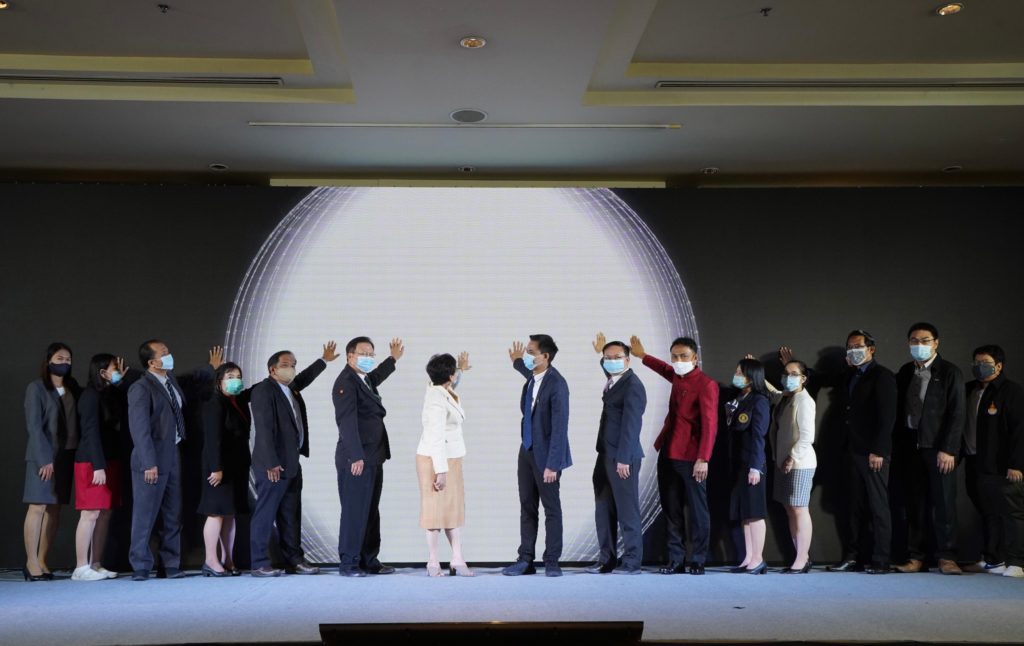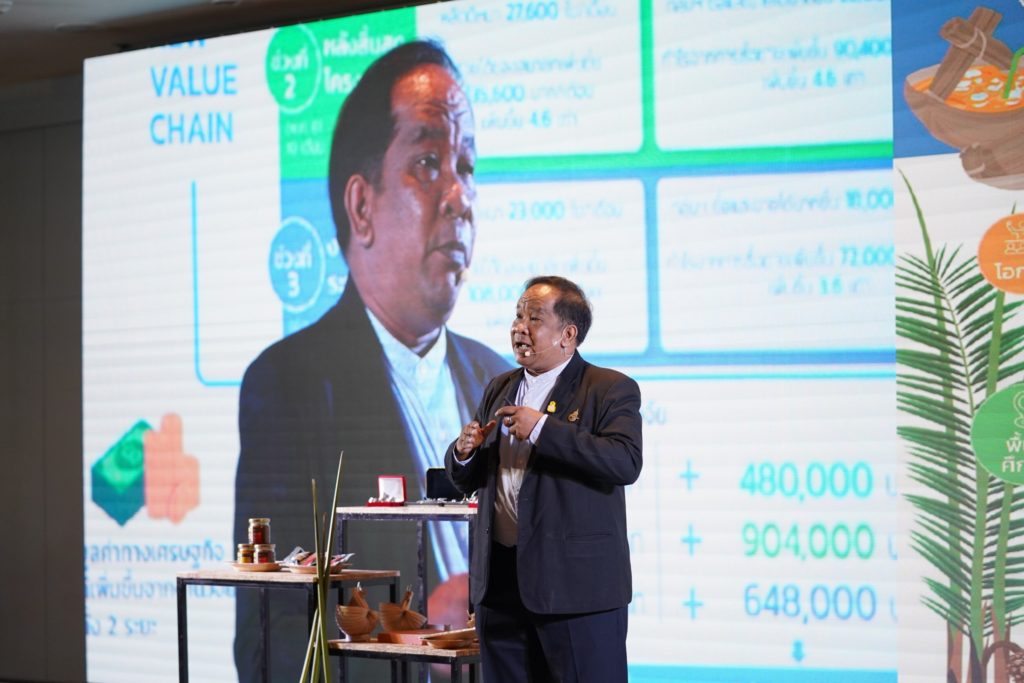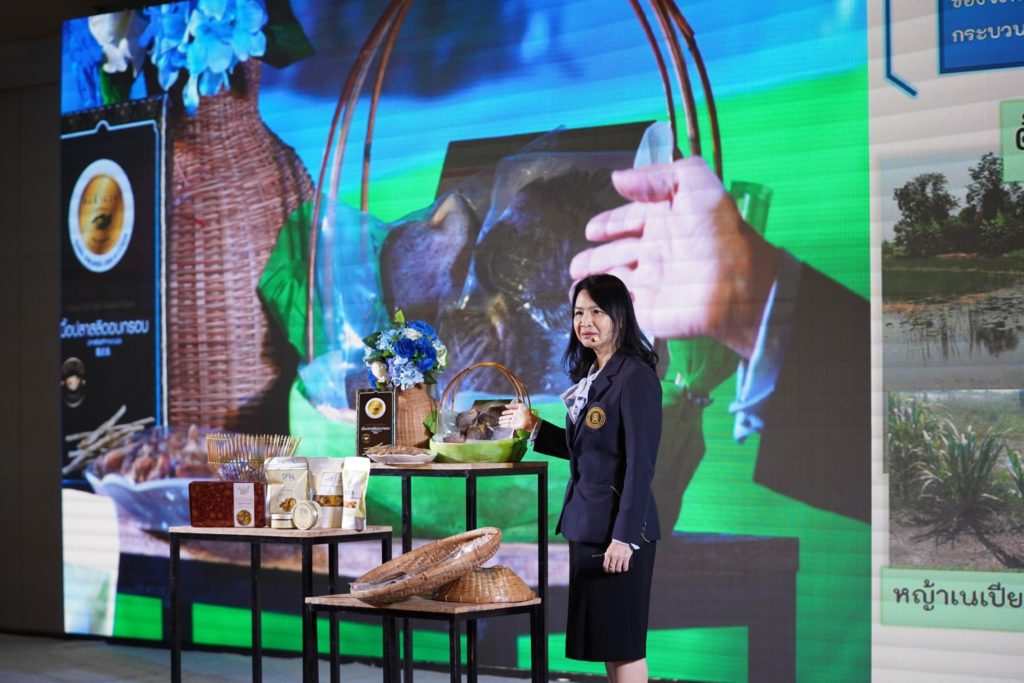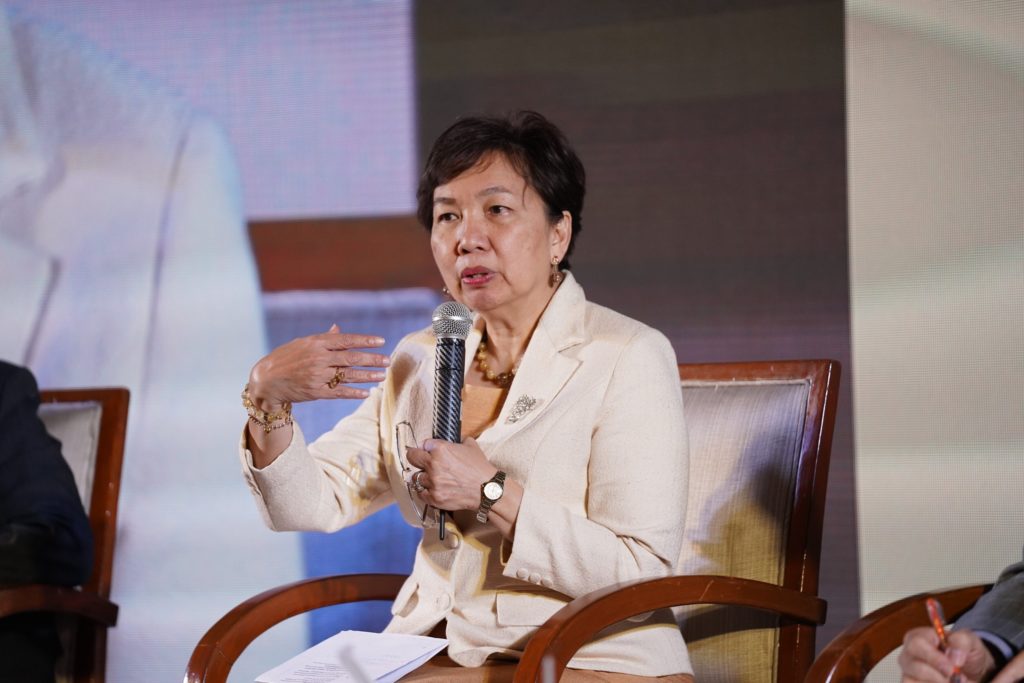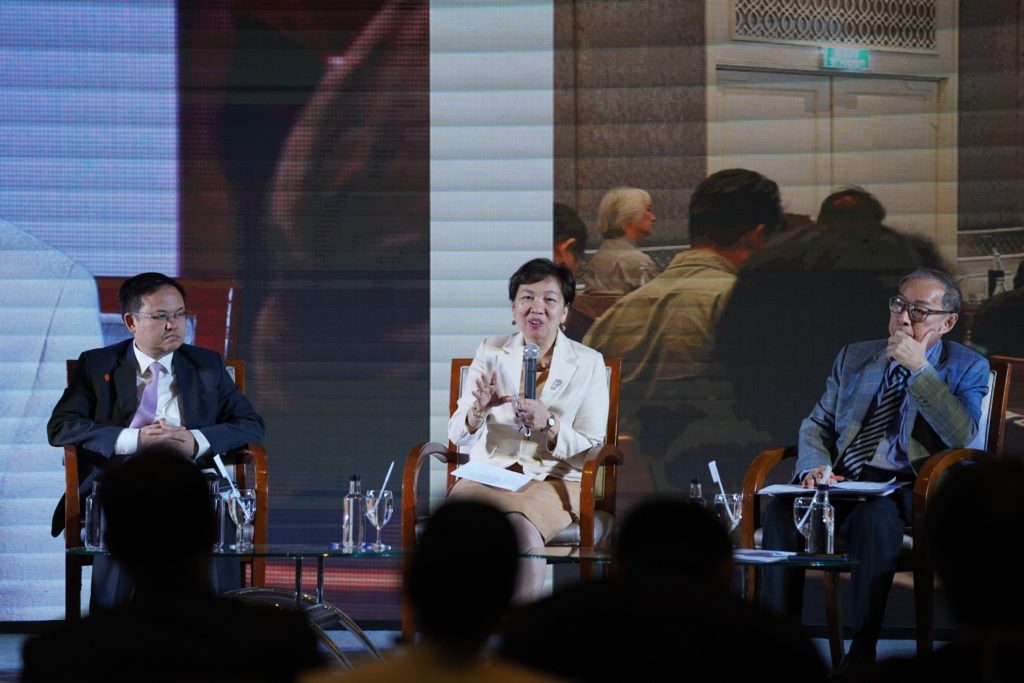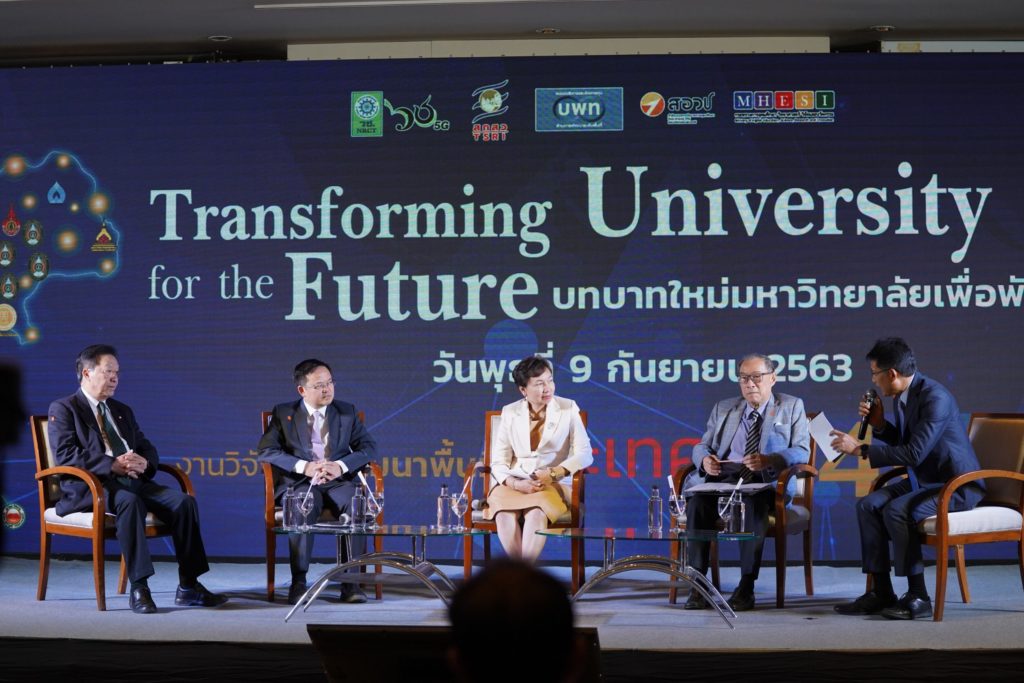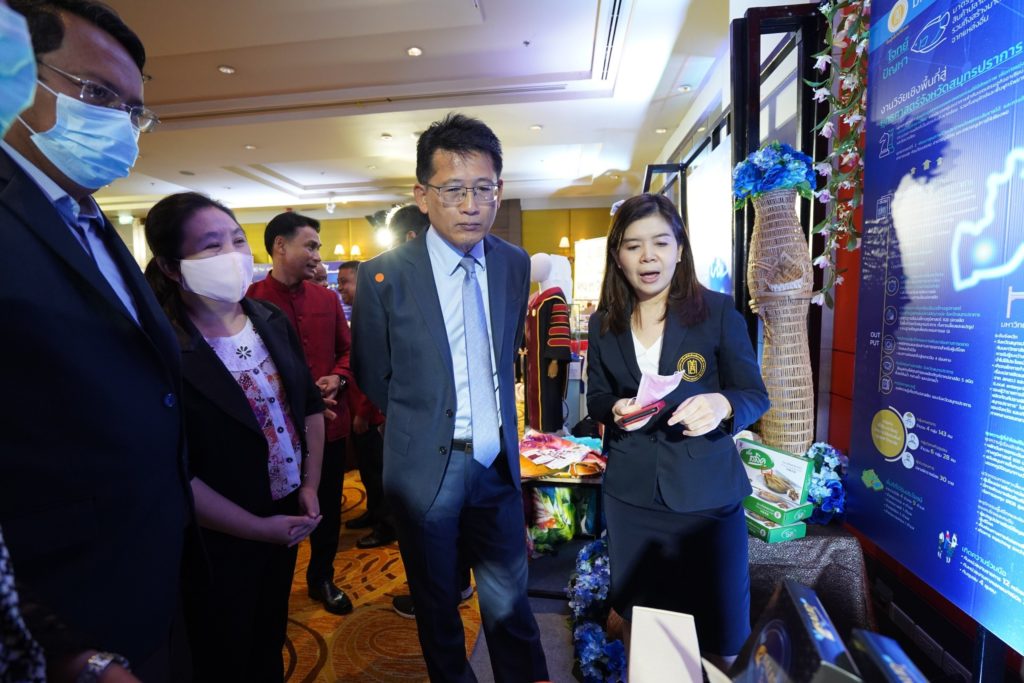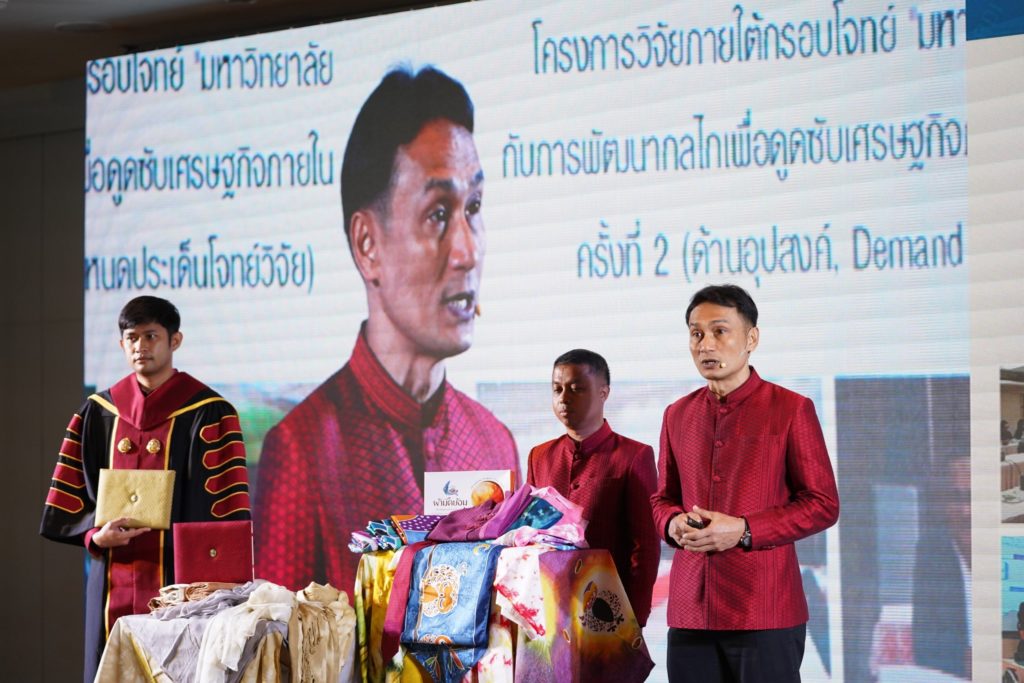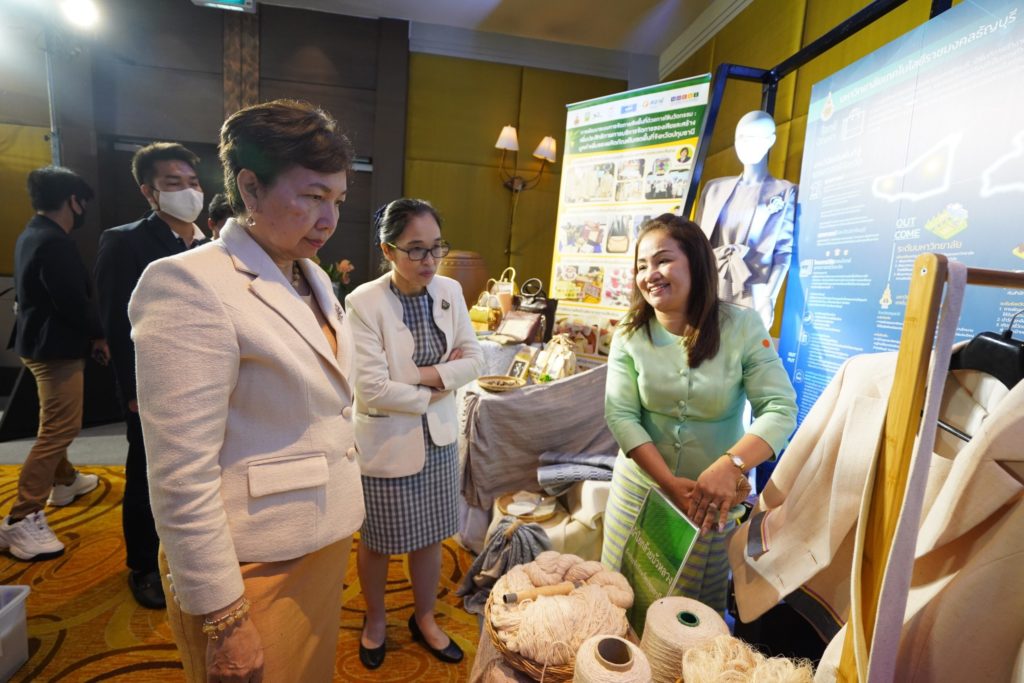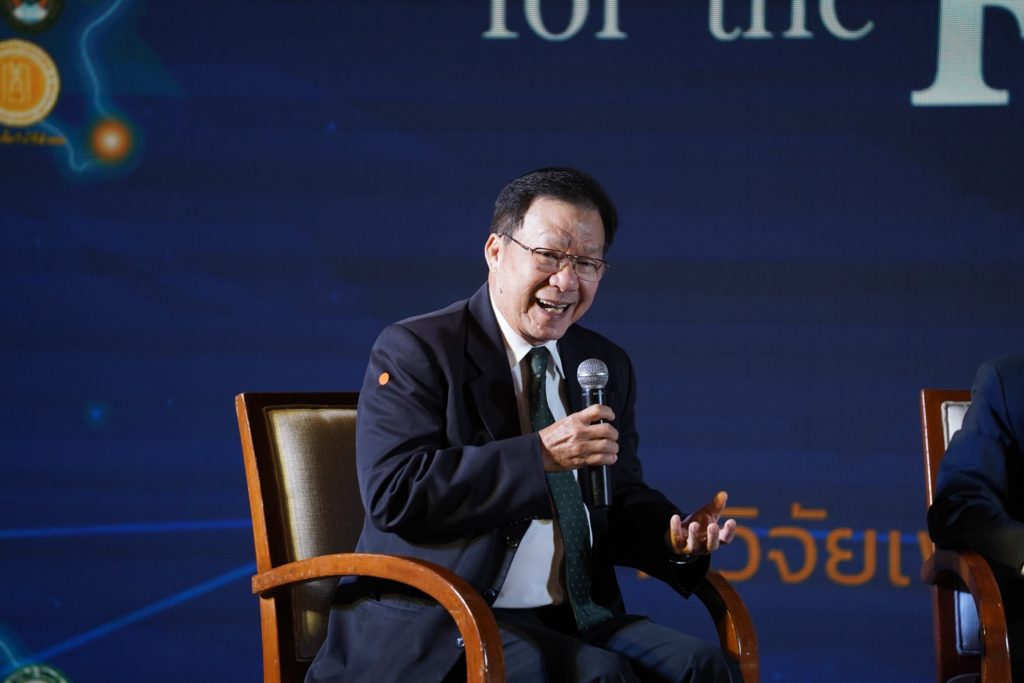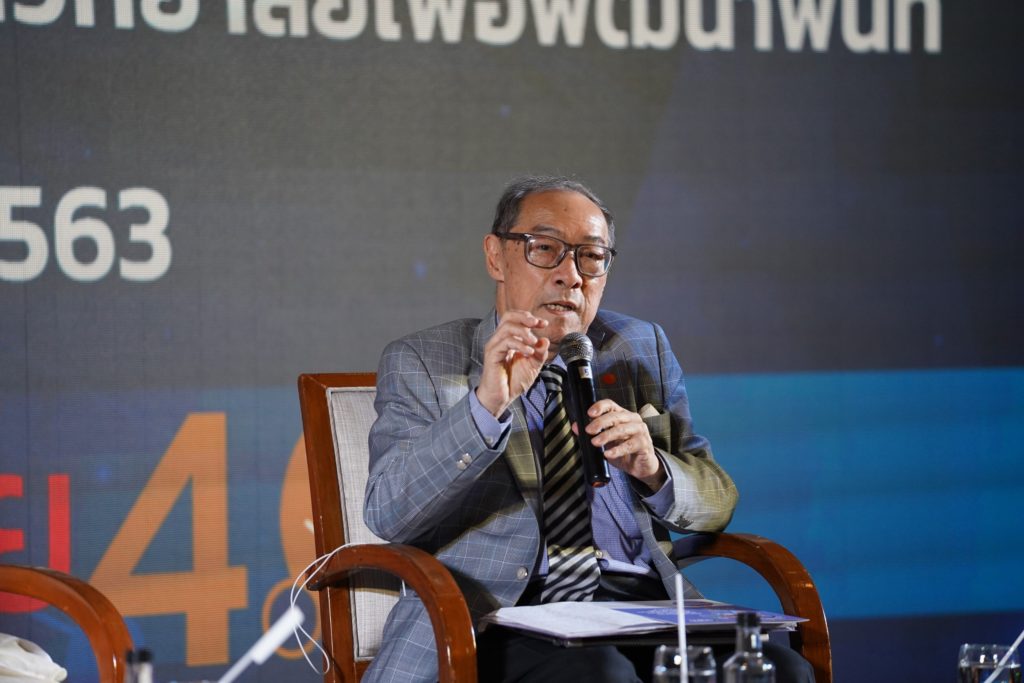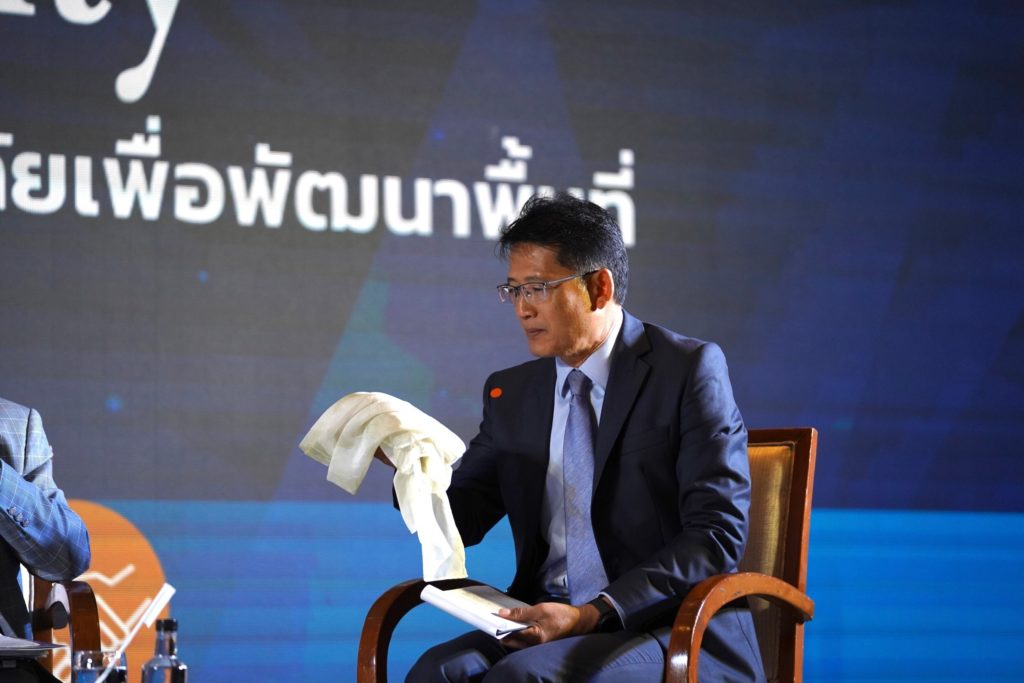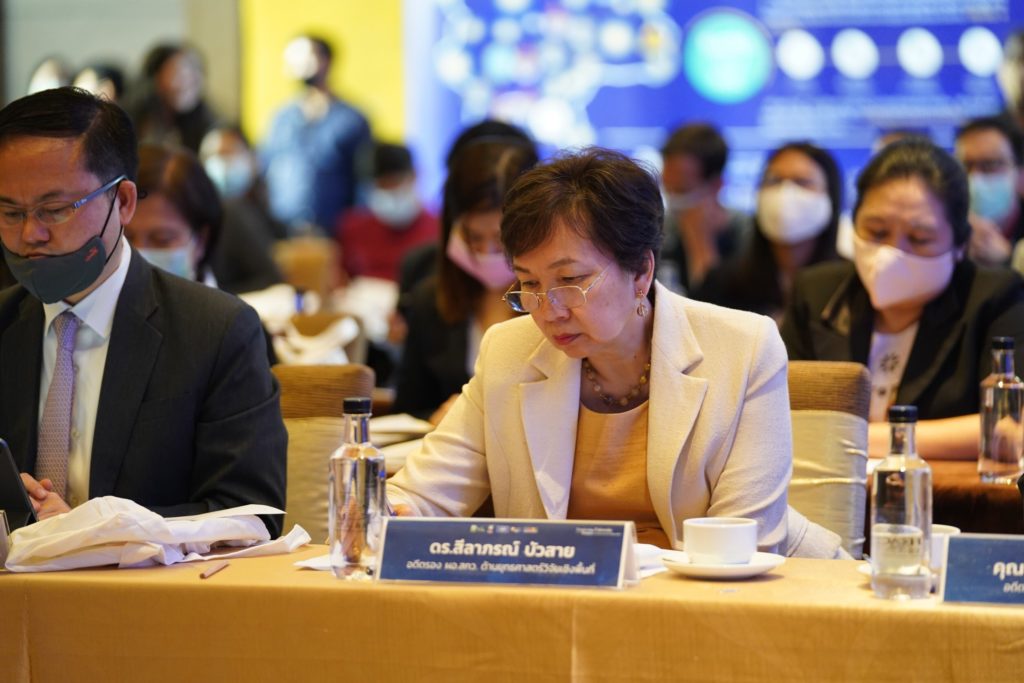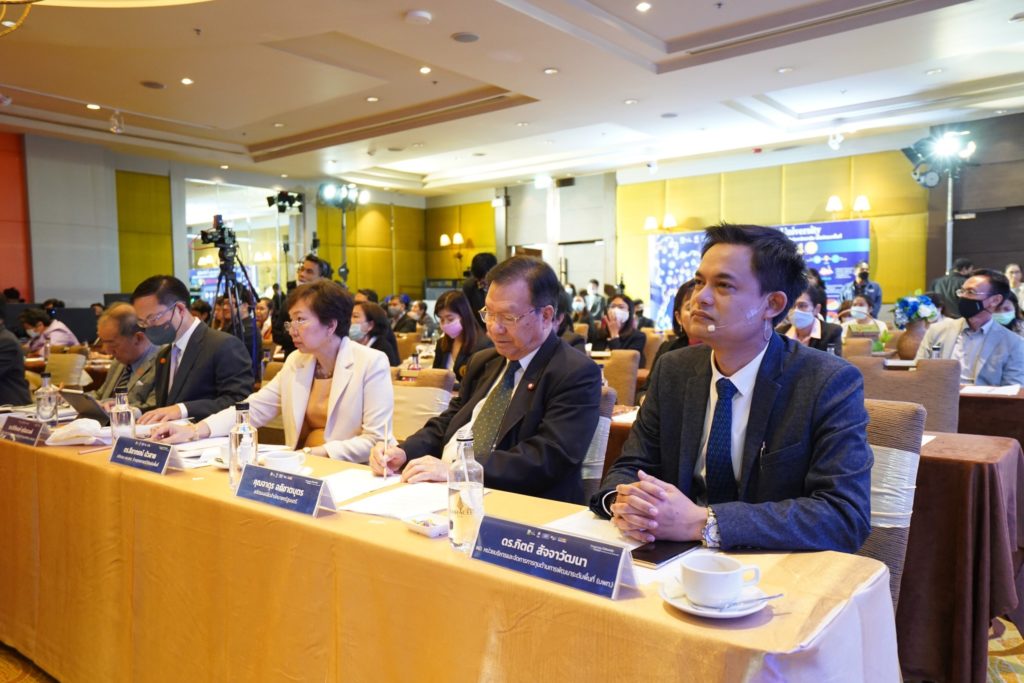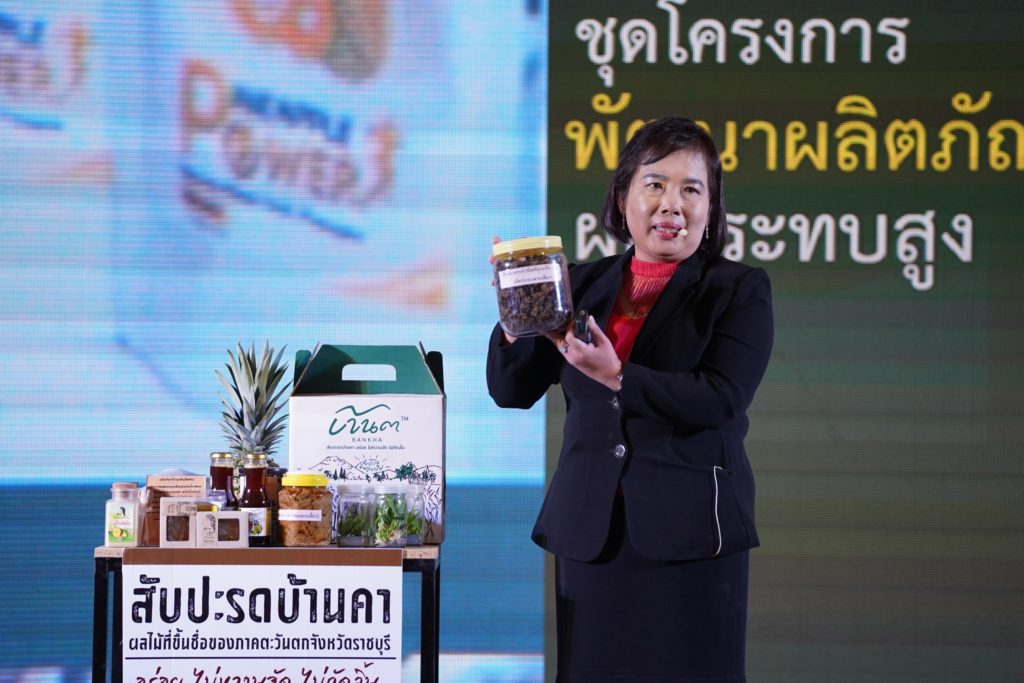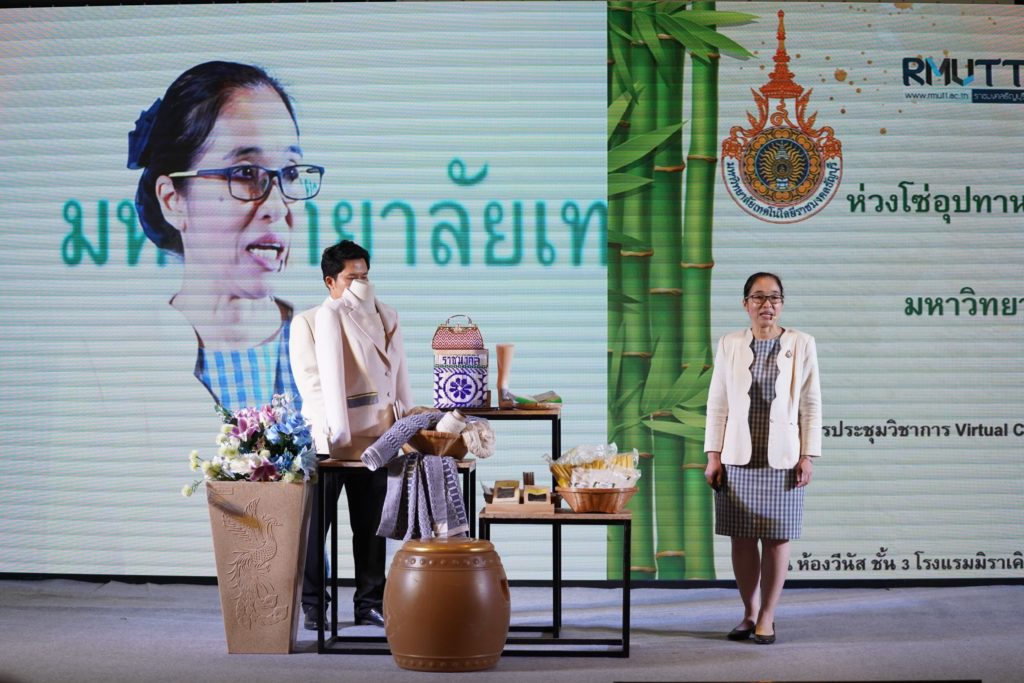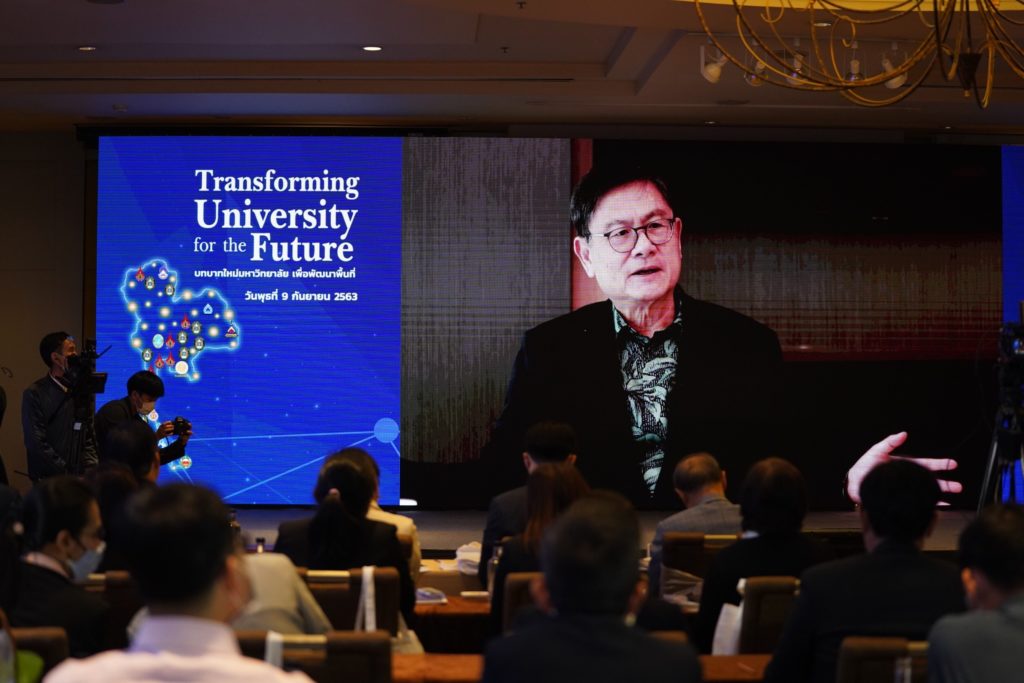
A Virtual Conference on Transforming University for the Future was held on 9 September 2020, under a theme “University’s New Roles in Area-based Development”. The conference was organized by Program Management Unit for Area-based Development (PMU-A) – an independent funding unit established under the auspices of NXPO, the National Research Council of Thailand (NRCT) and Thailand Science Research and Innovation (TSRI).
In his keynote address, Prof. Dr. Anek Laothamatas, Minister of Higher Education, Science, Research and Innovation (MHESI), informed the audience about his experience from the recent visit to review the progress of area-based development projects undertaken by Rajamangala University of Technology Lanna and the University of Phayao. He was impressed with the methodologies and results of these projects which place the focus on utilizing cultural capital to develop grassroots economy through public-private-people partnership. He emphasized that the broad scope of MHESI which covers higher education and all areas of sciences, including physical sciences, social science, humanities, archeology, arts and music provides a perfect setting to execute the area-based development. In these projects, universities play a key role in applying scientific thinking to help communities realize the potential of their culture in creating business opportunities and community-based economy. Minister Anek encouraged PMU-A to expand the program coverage from 18 provinces to at least half of the country, ie. 38 provinces. Especially during this pandemic in which inbound tourism and export industry are suffering, grassroots economy is an essential economic engine of the country.

Dr. Kitti Satjawattana, PMU-A Director, said that PMU-A was established to execute strategy and plan of the national agenda on area-based development. Through the network of agencies under MHESI which also covers higher education institutes, PMU-A, in collaboration with NRCT and TSRI, has been facilitating local universities to play a key role in driving community development. With a network of 21 universities in 21 provinces, 102 million THB fund has been disbursed to 660 projects in total. These projects involve 1,754 researchers – 915 of which are young researchers – and 227 staff from universities and community bodies.
The projects have resulted in 395 domestic publications and 34 international publications, 116 IP applications and 186 innovations. A total of 15,562 people have benefited from these projects, with an estimated 242.2 billion THB socio-economic impact. In addition, the projects have strengthened local engagement and resulted in development of mechanisms and universities’ manpower, as well as deregulations for long-term area-based research and development.

Dr. Kitipong Promwong, NXPO President, indicated that there are 180 higher education institutes and 30,000 talents in Thailand. This pool of resources has so much to contribute, provided that the country has a clear direction and strong policies, which include multi-year budgeting, easing impeding rules and regulations such as those related to the government procurement and the right ecosystem to motivate talents in this line of work. Furthermore, he suggested that contribution to poverty alleviation be included in the university ranking criteria, in addition to academic excellence.
Presently, there are science parks located in each region of Thailand. These science parks serve as innovation hubs to develop technologies and innovations for the region. However, support from the government is still needed in term of investment in pilot plants to scale-up the production and quality infrastructure. NXPO is in the process of developing strategy and plan for “University as a Merketplace” policy initiated by Minister Anek. This new policy will carve out new roles for universities in community-based development as follows: 1) University as a Consumption, 2) University as a Market Platform, and 3) University as an Innovator/Innovation Supporter.


